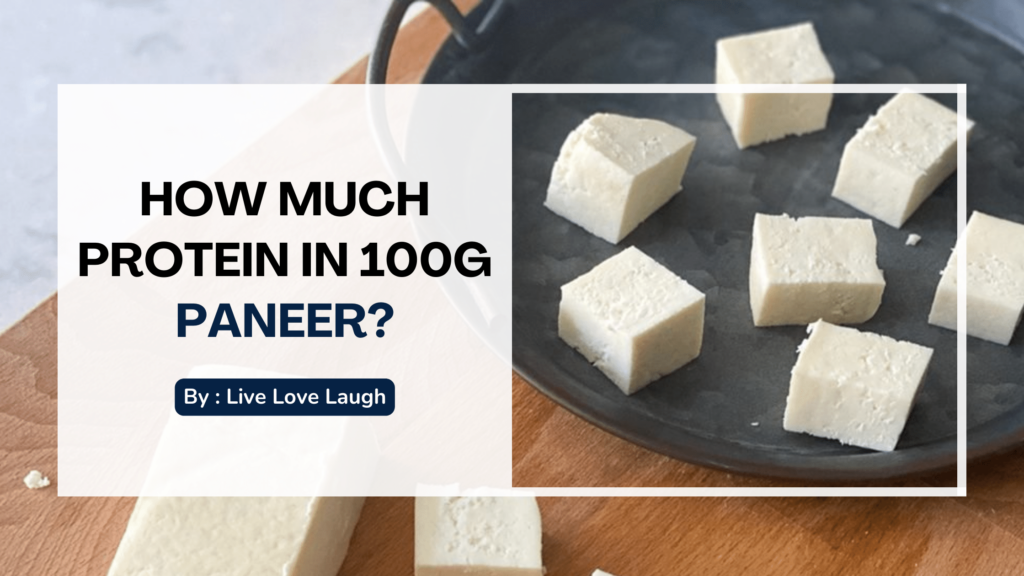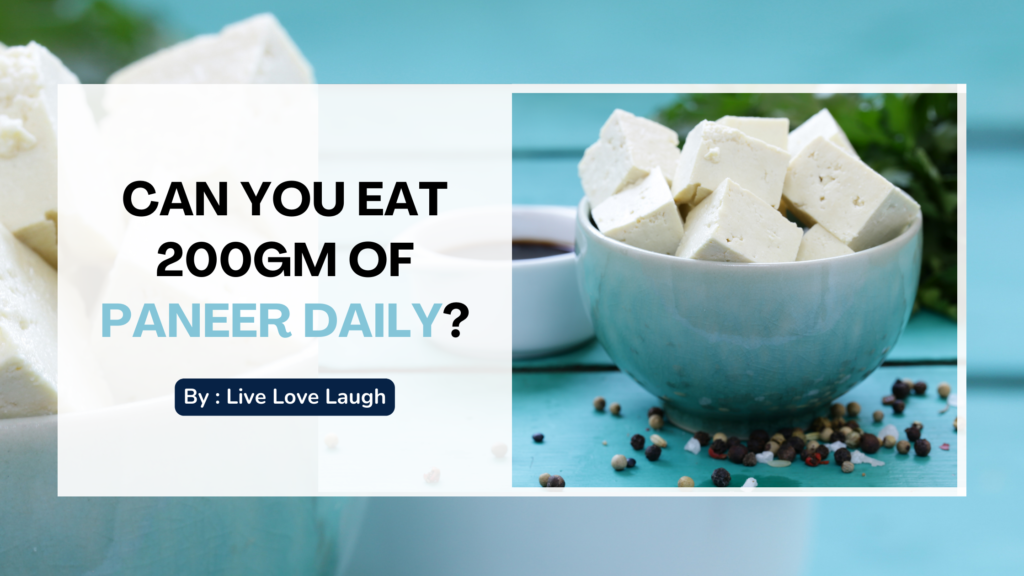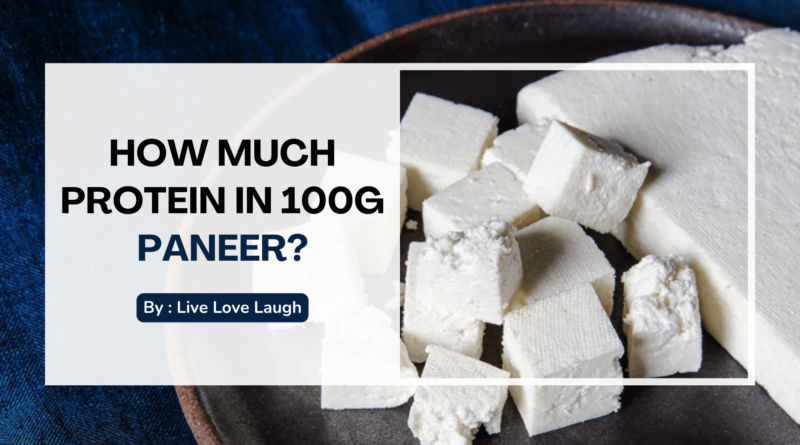How Much Protein in 100g Paneer?
Discover the protein-packed world of paneer in this detailed article. Uncover the impressive protein in 100g paneer, making it an excellent choice for those seeking vegetarian protein sources. Learn about the nutritional composition of paneer, compare it to other protein sources, and explore the benefits of including this delicious cheese in your diet.
Table of Contents
Understanding Protein
Why is Protein Essential?
Protein, the building block of our bodies, is essential for a plethora of functions. As one of the three macronutrients, alongside carbohydrates and fats, it plays a vital role in repairing and creating tissues. From the speedy recovery of muscles after a workout to the health and beauty of our skin, hair, and nails – all owe their existence to protein.
Protein also has an instrumental role in producing enzymes and hormones that drive various bodily processes. For instance, insulin, a hormone regulating our blood sugar levels, is a protein. Similarly, digestive enzymes breaking down our food into nutrients are also proteins.
What sets protein apart from fats and carbohydrates is our body’s inability to store it. Unlike fats and carbs, which our bodies can stash away for future use, protein must be replenished regularly, making it essential to consume it in adequate amounts daily.
Sources of Protein
Protein comes in various forms and from various sources, making it quite easy to incorporate into our diets. Animal-based foods like meat, poultry, fish, eggs, and dairy are popular protein sources, often termed ‘complete proteins’ due to the presence of all nine essential amino acids.
On the other hand, plant-based sources of protein include lentils, beans, nuts, seeds, and certain grains like quinoa. These are often called ‘incomplete proteins’ because, individually, they lack one or more essential amino acids. However, by combining different plant-based proteins throughout the day, you can still get a complete amino acid profile.
In this article, we focus on paneer, a popular dairy-based source of protein.
Paneer: An Excellent Source of Protein
What is Paneer?
Paneer is a type of fresh cheese commonly used in the Indian subcontinent and parts of the Middle East. It is made by curdling milk with a food acid like lemon juice or vinegar, which separates the milk into curds and whey. The curds are then drained and pressed to form a block of paneer.
Its smooth texture and mild flavor make paneer a versatile ingredient in cooking, from savory dishes like ‘paneer tikka’ or ‘matar paneer’ to sweet treats like ‘rasgulla‘.
Nutritional Composition of Paneer
Protein in Paneer
So, how much protein does 100g of paneer offer? On average, this serving size packs around 18g of protein, making it a substantial source of this essential macronutrient. The protein content can vary slightly based on the type of milk used and the production process.
Paneer’s high protein content makes it particularly beneficial for vegetarians and those on a lacto-vegetarian diet, as it helps meet their daily protein requirements.
Other Nutrients in Paneer
But paneer isn’t just about protein. It’s also an excellent source of calcium, contributing significantly to our daily calcium needs, promoting bone health, and aiding in bodily functions like muscle function and nerve transmission.
Paneer also contains a reasonable amount of fat. This fat, along with protein, contributes to the feeling of satiety, helping control hunger and potentially assisting in weight management.
Besides, paneer provides other nutrients like vitamin B12, which is vital for nerve function and the production of red blood cells, and selenium, a powerful antioxidant.
Comparing Paneer to Other Protein Sources
When looking for the right protein source, it’s essential to consider not just the amount of protein but also the profile of other nutrients. Here, we compare paneer with several common protein sources.
Paneer vs Meat
On a purely protein basis, meat, whether it’s chicken, beef, or fish, generally packs more protein than paneer. However, paneer brings its strengths to the table. It provides a substantial amount of protein while being much lower in saturated fats compared to red meats. This makes paneer a valuable protein source for those looking to reduce meat consumption without compromising on their protein intake.
Paneer vs Lentils
Lentils, the go-to plant-based protein, typically contain roughly 9g of protein per 100g serving. While they come with their benefits, such as being rich in fiber and low in fat, paneer clearly leads in the protein department.
Paneer vs Eggs
Eggs are often hailed as the perfect protein, given their complete amino acid profile. A single egg offers around 6g of protein. However, on a per 100g serving basis, paneer outperforms eggs in protein content.
Including Paneer in Your Diet
The beauty of paneer lies not just in its nutritional profile but also in its culinary versatility. From breakfast to dinner, there’s a paneer dish for every meal.
Paneer Recipes
For a protein-packed start to the day, try a paneer scramble or stuff it into a paratha (Indian flatbread). For lunch or dinner, curries like ‘paneer butter masala’ or ‘palak paneer’ are popular choices. If you prefer a lighter fare, toss grilled paneer into your salad for a protein boost.
You can also use paneer in snacks or appetizers. ‘Paneer tikka’, an Indian-style grilled paneer, or paneer stuffed bell peppers can make a nutritious and delicious snack.
Tips for Consuming Paneer
While paneer offers a host of nutritional benefits, it’s important to keep in mind that it’s also high in calories. Like with any food, moderation is key. Balance your paneer intake with other protein sources and a variety of fruits, vegetables, and whole grains to ensure a well-rounded diet.
Moreover, opt for low-fat or reduced-fat versions of paneer if you’re watching your calorie intake or managing conditions like high cholesterol.

Conclusion
Paneer is a nutritional powerhouse offering a substantial amount of protein. A 100g serving provides around 18g of protein, making it an excellent protein source, especially for those on vegetarian diets. It’s a versatile ingredient that can add both taste and nutrition to your meals. Remember, while paneer is nutritious, it should be consumed as part of a balanced diet.

FAQs about How Much Protein in 100g Paneer?
Q1. What other nutrients are found in paneer?
Ans. Besides protein, paneer offers calcium, fats, vitamin B12, and selenium, among others.
Q2. How does paneer compare to tofu in terms of protein content?
Ans. Tofu typically offers less protein than paneer, with around 8g per 100g serving.
Q3. Can paneer help in weight loss?
Ans. Paneer can contribute to weight loss when consumed in moderation as part of a balanced diet due to its high protein and calcium content.
Q4. Is paneer good for muscle growth?
Ans. Absolutely! The high protein content in paneer supports muscle growth and repair.
Q5. Can I eat paneer daily?
Ans. Yes, but it’s important to consume it in moderation given its high-calorie content.
You may also like




